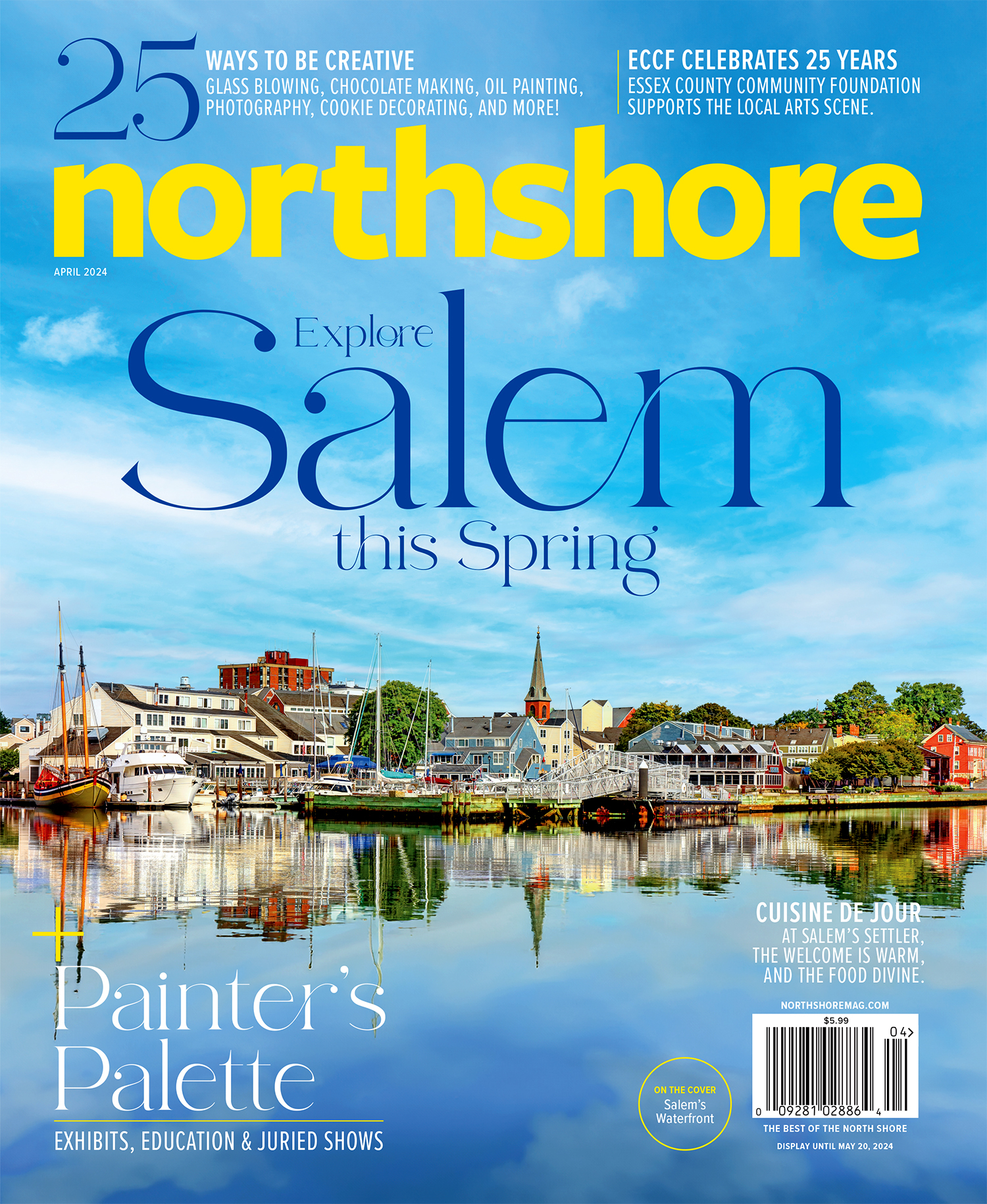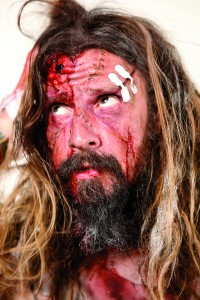Fashioning an identity around the word for a reanimated corpse can make spontaneity tricky. Of course, when your last name is Zombie, people come to expect certain things. Luckily, Rob Zombie-the Haverhill-raised shock rocker, horror film director, comic book author, and sometime amusement park ride designer-has pretty much always lived up to his chosen moniker.
Zombie was born Robert Cummings, Jr. in early 1965. His parents had spent years working in traveling carnivals, memories of which would later inspire Zombie’s 2006 album Educated Horses, which is what circus types call trained animals. By the time the family settled in Haverhill so that Rob and his younger brother, Michael, could go to school, Dad worked as a furniture maker and Mom worked in sales.
As kids, Rob and Michael spent a lot of time the way many 1970s-era suburban kids whose parents both worked did: sprawled in front of the TV (in Rob’s case, watching early horror movies like Frankenstein and The Wolf Man), reading comic books, rocking out to Alice Cooper, and making up stories about the neighbors. A family of albinos who lived down the street provided inspiration for a character in Zombie’s 2003 film House of 1000 Corpses, which preceded his more famous, bigger-budget works: late-1990s remakes of Halloween and Halloween 2. But despite an emerging fascination with gore, Halloweens in Haverhill weren’t particularly memorable. “All I know is that it was always freezing cold,” Zombie says. “It was like, I don’t want to wear my ski jacket over my pirate costume!”
After graduating from Haverhill High School, Zombie enrolled at New York City’s Parsons School of Design for a degree in fine art illustration. Eventually, he was kicked out for poor grades and spent a few years job-hopping as a bike messenger, a graphic designer for adult magazines, and a production assistant on the TV series Pee-wee’s Playhouse. But art was always a part of the plan.
Restless in the late 1980s, Rob and friend Shauna Reynolds decided to form a metal band, which they called White Zombie after the 1932 horror film. White Zombie played its first gig in April of 1986 on the Lower East Side of New York and spent a few years putting out independent albums before signing in 1991 with Geffen Records. Zombie himself wasn’t just the band’s face and namesake, but the mastermind; he wrote most of the songs and designed the album cover art. He became known for his dark dreadlocks, sleeves of tattoos, gravelly voice, and dark theatrics to match-grizzly live performances saw thousands of “horror geek” fans singing along to songs with titles like “Living Dead Girl” and “More Human than Human.” On the side, he wrote and illustrated comic books.
Once described as having a Wall Street-quality work ethic, Zombie, however, was always looking for the next thing. He admits he gets bored easily. In the 1990s, he fell into writing and directing films after making music videos for Ozzy Osbourne, Powerman 5000 (of which his brother, Mike, is a member), and his own band, before it split in 1998. Earlier this year, Zombie directed his first-and likely last-hour of television, an episode of CSI: Miami. “TV,” he says, “is very restrictive.” Similarly, the likelihood of Zombie taking on a comic book-inspired superhero flick-even though he was raised on Marvel-is about as likely as a Zombie-helmed Jennifer Aniston rom-com. “I’m not interested in superhero movies,” he says. “Because when movies get to that budget-we’re talking $100 million, $200 million-the material is fairly safe. And that’s not really my thing.”
When he’s not touring or on location, he and his wife, actress and clothing designer Sheri Moon Zombie, split their time between Los Angeles and Connecticut. This fall is typically packed: Halloween at Universal Studios for the unveiling of Rob Zombie’s House of 1000 Corpses, a 3-D maze based on the movie; a voice cameo as God in Super, a feature-length superhero send-up co-starring  Rainn Wilson, Ellen Page, Kevin Bacon, and Liv Tyler; the next installment of his latest comic book series, The Haunted World of el Superbeasto; and prepping for his next writing and directing project, which he’s not ready to announce, though he describes it as “pretty weird, pretty out there.” He’ll also be touring through the fall with Alice Cooper, his old childhood hero (October includes a performance in Worcester, as well as in Portland, Maine).
Rainn Wilson, Ellen Page, Kevin Bacon, and Liv Tyler; the next installment of his latest comic book series, The Haunted World of el Superbeasto; and prepping for his next writing and directing project, which he’s not ready to announce, though he describes it as “pretty weird, pretty out there.” He’ll also be touring through the fall with Alice Cooper, his old childhood hero (October includes a performance in Worcester, as well as in Portland, Maine).
Even though he’s been at it for 25 years, performing live never gets old, Zombie says. “As time goes on, you’re smart enough to appreciate things more, and I like touring more than ever. There are so many new ways to discover music-from video games, YouTube-that our audience has never been more diverse. Literally, we’ll have fans at our shows who are four years old and fans who are 60. It’s amazing that we get to do this for a living.”
Â

